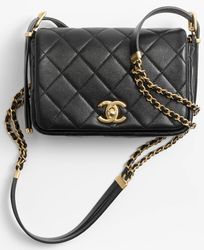When I was growing up, the term ‘hand-me-down’ had such an elitist connotation. It referred to items ‘donated’ to those who could not afford them. By default that ended up being the domestic staff in and around the house. I think the only hand-me-down that I owned in my early years was a gorgeous georgette black and white structured jacket I inherited from a formerly skinny aunt, the only one who wore ‘western’ clothes in the family before I did. But I was thrilled. I wore it every weekend to every house party that the 16-year-old me was invited to, and after much dancing I would remove it to scandalously expose my shoulders to the rest of the room.
For years after, the only hand-me-down I welcomed were items of jewellery. Gold—yes I’ll have some. Diamonds and emeralds—happy to relieve you of them. And much later came the saris, as they brought back the fragrance of grandmothers and mothers who had worn them.
But thankfully, ideas of second-hand fashion have had a paradigm shift. They are largely coveted these days for many reasons. There are several stores or sites selling ‘vintage’ or ‘pre-loved’ fashion items like bags, shoes and clothing. Primarily because they cost less than the original. But also because it gives the item a longer life; it is better to have someone else appreciate it and make a little money from it once you are bored of it. There is a third gnawingly popular reason: luxury brands are going crazy raising the prices of their items, and an army of fashion lovers would like to stick a finger up at them by purchasing a second-hand item, or even a duplicate.
It is this can’t-buy-them-so-let’s-bash-them approach that is really worrying luxury brands these days. Several brands, such as Hermes and Chanel, have stopped selling to who they think are potential resellers. Hermes famously won’t sell you a handbag unless you have a history of shopping from the label. It has given rise to the phrase: “You don’t choose an Hermes bag, it chooses you”. And Chanel raised the price of its iconic flap bag to over $10,000 to make it even more inaccessible. Chanel has also taken the resale market head on with its 2021 policy—you can only buy one of their handbags each year. Here is the downside of virality if you were seeking one: fakes and resales.
Tiffany James, handbag collector and the founder of Modernblkgirl (a financial investing company for black women), thinks the luxury labels deserve this. “I think it is tone-deaf of them to continue to raise prices,” she says in an interview to Fashionista.
Moreover, since brands are now ‘choosing’ their customers with greater scrutiny, they are opening the door for resales even wider. According to Fortune, the global secondhand market is expected to double to $350 billion. Some of the key international players include Fashionphile, Garderobe, Inseller, The RealReal and Luxepolis, while Indian preloved companies are ReLove, Revivify, Saritoria, Luxury Pop and VRTT Vintage.
From the consumer’s perspective, the handbag is now a genuine asset. If its price keeps increasing, there is potential to sell it for more money than you purchased it for. It is akin to not looking at the proverbial gift horse in the mouth. A Business of Fashion case study showed that 62 per cent of resellers have sold luxury accessories for more than they purchased them.
The greatest challenge for luxury labels is going to be how to ensure their cash cow—the handbag—continues to drive their profits.


